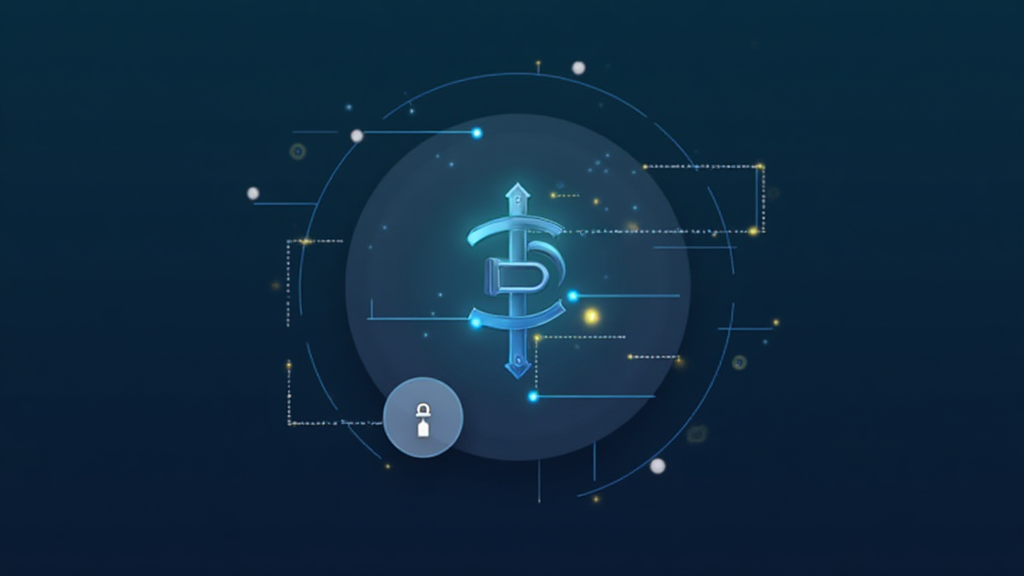2025 Blockchain Security Standards: A Comprehensive Guide for Digital Asset Protection
As we approach a new era in the digital economy, the challenges posed by blockchain vulnerabilities and cyber threats continue to grow. With over $4.1 billion lost to DeFi hacks just last year, enhancing your security measures is no longer optional—it’s essential. In Vietnam, the burgeoning crypto market is witnessing exponential growth, which highlights the necessity for stringent blockchain security standards.
Understanding Blockchain Security
Blockchain technology has revolutionized transactions and decentralized finance (DeFi), but like any financial system, it is vulnerable to attacks. The core of secure blockchain implementation relies on understanding its architecture and the potential attack vectors.
- Consensus Mechanism Vulnerabilities: Different consensus mechanisms— Proof of Work (PoW) and Proof of Stake (PoS)—each come with unique vulnerabilities. For example, PoW-based chains can be susceptible to 51% attacks, while PoS chains may face issues with validator centralization.
- Smart Contract Risks: Smart contracts are the backbone of many blockchain applications, and flaws within the code can lead to significant financial losses. For instance, recent audits reported that over 30% of smart contracts deployed in 2024 had preliminary vulnerabilities.
- Network Vulnerabilities: Layers involving network infrastructure can witness attacks like Sybil, DDoS, and Routing attacks, which can disrupt services or siphon funds.
In Vietnam, the user growth rate for cryptocurrency platforms has soared, drawing attention to the necessity for robust security protocols. Adopting the tiêu chuẩn an ninh blockchain is therefore critical.

Empowering Users through Security Education
Education is a key component in combating blockchain vulnerabilities. Users should be informed about the types of attacks, how to recognize them, and what steps can be taken to protect their assets.
- Decentralized Wallet Usage: Encourage users to utilize decentralized wallets instead of centralized exchanges, reducing exploit potential.
- Security Tools: Introduce users to effective tools such as hardware wallets (e.g., Ledger Nano X), which significantly reduce hacking incidents by up to 70%.
By providing educational resources, platforms like hibt.com can empower Vietnamese crypto enthusiasts to take proactive measures against potential threats.
Regular Audits & Compliance
Conducting regular audits is fundamental in maintaining blockchain security. In 2025, leading firms will implement a comprehensive audit process to scrutinize smart contracts and project configurations.
- Platforms must engage third-party auditors to ensure that the deployed solutions are flawless.
- Compliance with local regulations will also enhance credibility and trust among users.
For instance, in the latest report, over 70% of audited companies adhered to stringent compliance requirements, thereby reducing risks associated with hacks.
Data Security Best Practices
Considering that blockchain operates in a transparent ledger environment, protecting sensitive data remains paramount.
- Encryption: Utilizing end-to-end encryption ensures user data remains concealed from potential attackers.
- Access Control: Implementing strict access controls minimizes the risk of unauthorized access to sensitive information.
By protecting user data effectively, platforms can build trust and foster a resilient community of crypto users.
The Future of Blockchain Security in Vietnam
As Vietnam continues to establish itself as a blockchain-friendly nation, the importance of formidable security standards cannot be overstated. In 2025, it is projected that Vietnamese crypto users will expand to over 10 million, furthering the demand for effective security practices.
- Adoption of AI and Machine Learning: Leveraging AI-driven solutions will help in identifying and mitigating threats in real-time, offering another layer of security.
- Collaborations with Global Bodies: Engaging with international security organizations could also facilitate knowledge sharing and innovation in security measures.
To remain ahead in the game, it is crucial for Vietnamese entities to stay updated on global advancements in blockchain security.
Conclusion
As we’ve explored, adopting the latest HIBT Vietnam cross and other blockchain security standards is vital for protecting digital assets in an increasingly competitive market. By investing in tailored security practices, participating in regular audits, and educating users, platforms can cultivate a secure environment for all participants. The future of blockchain in Vietnam holds immense promise, and with the right security measures, we can unlock its full potential.
Lastly, remember that this information is intended for educational purposes and is not financial advice. Always consult with local regulators to ensure compliance and security.
Author: Dr. Minh Nguyen, a blockchain security researcher with over 15 publications in the field and leader of major project audits in the industry.



